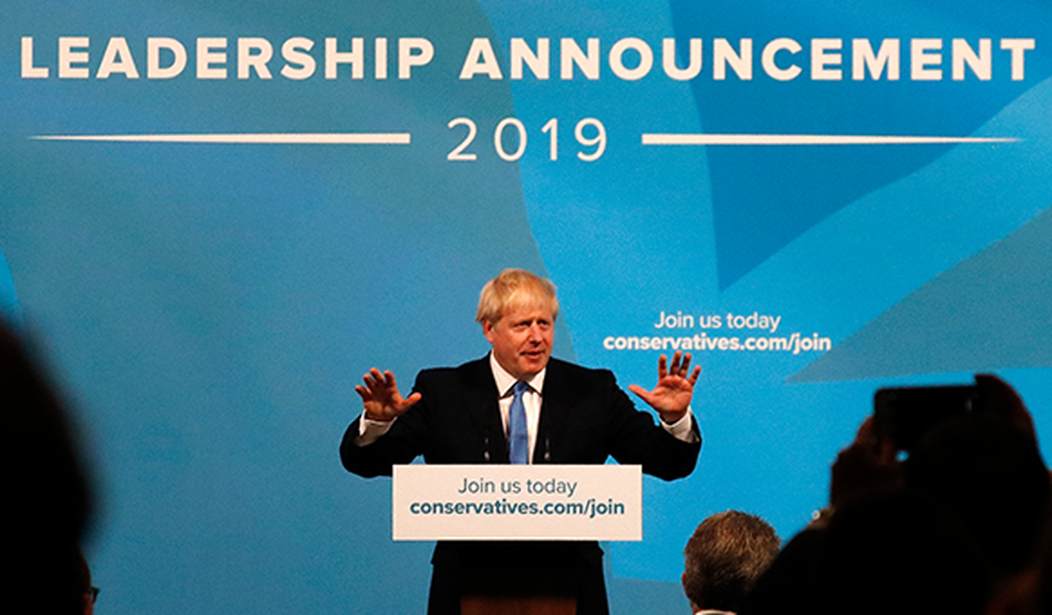It has been 1,225 days since an all-time-high turnout of British voters chose, by a 52 to 48% margin, to Leave rather than Remain in the European Union. Now with a general election set for Dec. 12, it looks like Britain is finally about to escape the EU's "ever closer union."
The issue is unfamiliar to most Americans, yet the cleavages it has caused closely resemble our own. American foreign policy elites have long encouraged European unity, on the sentimental principle that it worked well for us in 1776 or the long-obsolete argument that it would prevent another cataclysmic war between Germany and France.
But, as Charles de Gaulle argued when he vetoed British accession to what was then the European Economic Community in 1963, Britain and Europe are not a good fit. European law is built on general principles enunciated in its Napoleonic codes; English common law is built on an accretion of decisions in specific cases. De Gaulle explained: "England in effect is insular, she is maritime, she is linked through her exchanges, her markets, her supply lines to the most diverse and often the most distant countries."
Nonetheless, Britain joined the EU in the 1970s, when it was in the economic doldrums and Europe seemed more modern and dynamic. Since the Margaret Thatcher revolution of the 1980s, Britain has surged ahead economically and Europe has sunk into slow growth. And Britons have increasingly bridled against getting their laws from a politically unaccountable bureaucracy in Brussels.
Anti-EU feeling welled up in the Conservative Party. Facing defections to Nigel Farage's anti-EU party, which won 13% of popular votes in 2015, Conservative then-Prime Minister David Cameron promised a referendum on EU membership. It was held in June 2016, and most major institutions -- the Conservative, Labour and Liberal Democratic parties; the BBC and most newspapers; the London financial community; veteran civil servants -- supported Remain and assumed it would win.
Recommended
Oops. Metropolitan London and ethnically distinctive Scotland and Northern Ireland voted Remain, but the rest of England -- 70% of the nation -- voted 53% Leave. The metropolis versus the heartland: the same cleavage that elected Donald Trump five months later.
What followed were a series of blunders and self-righteous sabotage. Cameron's successor, Theresa May, a Remain supporter, knuckled under to EU demands and called a 2017 snap election that cost Conservatives their majority. Her withdrawal agreements were voted down three times by the House of Commons.
After she extended the March 29 deadline for leaving the EU, in the polls the Conservative Party fell behind Labour and its left-wing, anti-Semitic leader, Jeremy Corbyn. She resigned, and in July, the colorful former London Mayor Boris Johnson became prime minister.
Instantly, Conservatives zoomed ahead of Labour in polls. Johnson was dismissed as a buffoon by establishment press, and an odd-duck coalition of Conservative Remainers, Lib Dems and Labour -- with the help of Speaker John Bercow, who abandoned the position's neutrality -- seized control of Parliament's agenda. Astonishingly, former Prime Ministers Tony Blair and John Major endorsed this contempt for voters they dismissed as bigoted and ignorant. You only get respect if you vote their way.
Nevertheless Johnson, by threatening to leave without an EU agreement, managed to negotiate one and now has delivered the general election Labour was blocking. Current polling has Conservatives leading Labour 35 to 25%, with the newly formed Brexit Party at 11%.
Cautious British analysts warn that in 2017, Conservatives had a similar lead and blew it after the supposedly "strong and stable" May abandoned an ill-advised estate tax increase. The Brexit Party could take hardcore Leavers away from Conservatives. Labour and Lib Dem Remainers could defer to one party or the other to maximize the anti-Johnson vote in different constituencies. In Britain, as here, recent election results have made election prediction hazardous.
All that said, some things seem clear. The Conservative Party, having already lost upscale voters in high-income, high-education metro London and university towns, is aiming at making gains in downscale Midlands and constituencies north of England. Johnson is also abandoning Cameron's economic austerity with promises to increase health and police spending.
Psephologically inclined Americans will recognize this pattern. Results depend, however, on the political skills of the partisan players. If Boris Johnson gets the big parliamentary majority suggested by the polls, he will prove to be the most adept outmaneuverer of a hostile House of Commons since William Pitt the Younger in the 18th century and the most creative forger of one-nation conservatism since Benjamin Disraeli in the 19th. Impressive.
Michael Barone is a senior political analyst for the Washington Examiner, resident fellow at the American Enterprise Institute and longtime co-author of The Almanac of American Politics.

























Join the conversation as a VIP Member